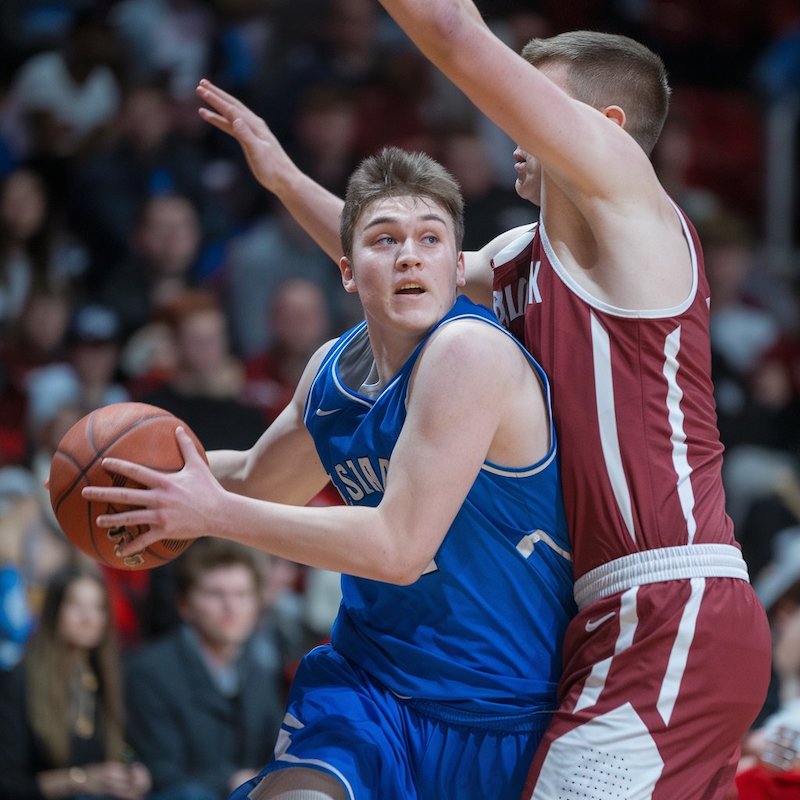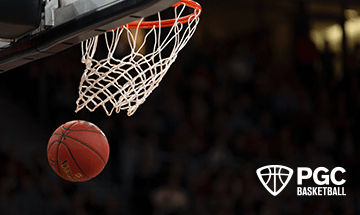Five Habits that Turn Off College Basketball Coaches
I have seen it all when it comes to recruiting. I coached college basketball for almost a decade and then ran a NCAA certified recruiting service that included college coaches from all levels. To this day, I often get asked by athletes, parents and high school coaches about college recruiting. The recruiting process can be daunting and confusing at times. However, that process could be over before it begins if you allow these five habits to be a part of who you are.
While collecting my thoughts to write this article, I reached out to 15 male and female college coaches from across the country, at every level, from Division I to Junior College. Here is what they had to say:
1) Poor body language
The inability to show good body language on the court when things are not going well is a sure-fire way to catch the eye of a college coach – for the WRONG reasons. One PAC-12 assistant said he doesn’t want “front runners” or players that are only good when things are going their way. Another college coach whose teams have been in four of the last six NCAA tournaments said, “Non verbal language speaks about character.” Poor body language is a red flag.
Watch: How to Communicate with Teammates
2) Disrespectful attitudes
Disrespect can show up in a few ways.
- “Players that never say thank you”
- “Players that are never happy for their teammates’ individual successes.”
- “Players who are not respectful to parents”
A Division I Ace Recruiter said these (as well as many more) are troubling signs to college coaches. An associate head coach at the mid-major Division I level said, “how they talk to their parents matters. We have eliminated a kid because he didn’t respect authority.”
3) Poor behavior on social media
Social media has really changed the landscape in college recruiting, especially in the last five years. An athlete’s ability to make the right decisions on their different social platforms is key if their desire is to play at the next level. One college coach said they communicate to their kids how important their social media feeds are by saying, “Don’t put anything on social media that you would not put on a live interview on ESPN.” This has really helped filter out high-character players and helped coaches learn where a player’s priorities lie. Excessive retweets and posts all about themselves are a turn off to most coaches.
Coaches want to be able to hold a conversation both via text and over the phone. Unresponsive texts and phone calls leave a college coach concerned and left to wonder. One-word answers leave an impression that you do not care or may struggle to effectively communicate to future teammates and coaches.
5) The “ME” guys
Another red flag to coaches are players who put themselves over the team. One Southern Conference coach said he receives texts that say, “My team lost, but I had 21 points.” This simple and harmless-looking text will not give a good impression to a potential college coach. Basketball is a team sport. Being disengaged on the bench, inattentive in huddles or making comments after a game that put blame on others are signs the player does not truly care for the team. College coaches desire players who can get along with others and make the most of the situation.
Read More: It’s Not What You Do. It’s How You Do It
How do you avoid falling victim to these habits?
1. Get feedback from your coaches and ask them what they would tell a college coach about you. If you disagree, remember there is a hint of truth in every criticism.
2. Next, focus on becoming the best teammate possible. Be “others-focused” rather than “me-focused.” Really good college coaches will demand that you be a phenomenal teammate.
3. Pay attention to your habits and work diligently to build new ones that allow you to stand out in a good way.
Want help developing winning habits that stand out to good coaches? Attend a PGC course this summer and you’ll develop habits, skills, and mindset that get you noticed.
Related Articles
#1 Thing College Basketball Coaches Hate in a Recruit
A short while back on a PGC mentorship Zoom call, a player asked Yale Women’s Assistant Coach, Amber Raisner, “what’s the #1 thing you look for when deciding who NOT to recruit for your team?” Click to get the answer
5 Habits That Can Make Undersized Point Guards Unstoppable
When it comes to basketball, size isn’t everything. For undersized point guards, mastering specific skills and habits can not only level the playing field but also make them truly unstoppable.
How To Win The Inner-Game of Basketball (and Life)
As a basketball player, just like so many other walks of life, players do not operate at max capacity because they are extremely hard on themselves and are losing the ‘inner game.’
About PGC
PGC Basketball provides intense, no-nonsense basketball training for players and coaches. Our basketball camps are designed to teach players of all positions to play smart basketball, be coaches on the court, and be leaders in practices, games and in everyday life.
We combine our unique PGC culture with a variety of teaching methods and learning environments to maximize the learning potential of those that attend our sessions. In addition to spending 6-7 hours on the court each day, lessons will be reinforced through classroom sessions and video analysis.
Our goal at PGC is to empower you with the tools to fulfill your basketball dreams, while also assisting you in experiencing the joy of the journey.
To learn more about PGC Basketball, including additional basketball training tips and videos, visit our YouTube Channel or find us on Facebook, Instagram, and Twitter.













Share This Post